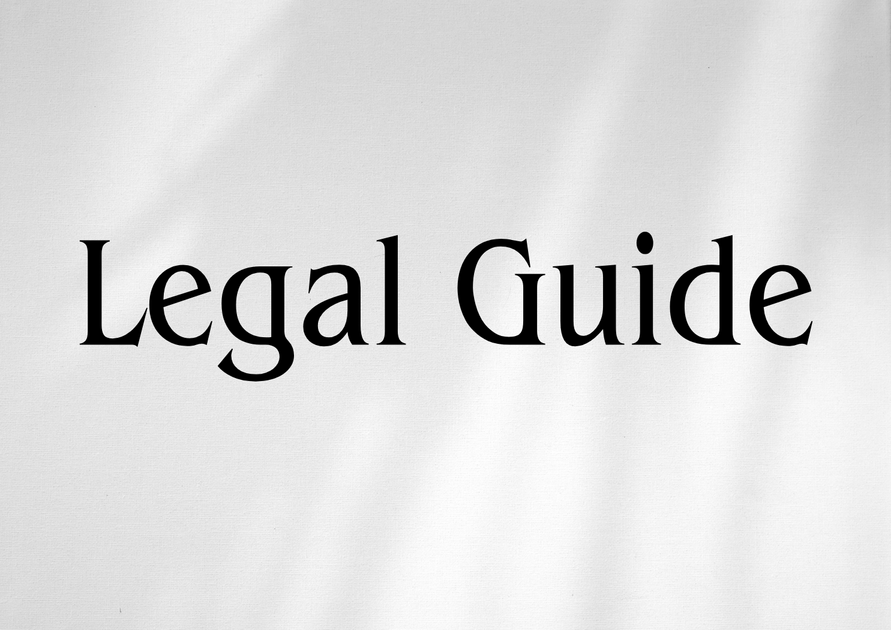Introduction
The United Arab Emirates (UAE) has firmly established itself as a leading hub for international commerce and dispute resolution. Efficient arbitration frameworks are now more important than ever as the UAE’s economic landscape evolves. This article provides an in-depth, consultancy-level analysis of the legal requirements for arbitrators within the UAE, dissecting recent legal developments, including the latest federal decrees and amendments. With heightened regulatory scrutiny and ongoing reforms—most notably, the Federal Law No. 6 of 2018 on Arbitration (the ‘UAE Arbitration Law’) and subsequent amendments up to 2023 and anticipated updates for 2025—the role and responsibilities of arbitrators demand both technical understanding and compliance readiness from commercial clients, executives, HR professionals, and legal practitioners. This guide equips decision-makers with practical compliance strategies and a forward-looking perspective on maintaining best practices in dispute resolution within the UAE’s dynamic legal environment.
With arbitration’s increasing prominence over litigation, the role of arbitrators—who are entrusted with significant quasi-judicial authority—deserves careful consideration under UAE law. From stringent eligibility criteria to detailed codes of conduct and disclosure obligations, the legal framework continues to evolve. This thorough analysis not only explains statutory requirements but also offers practical insights, risk considerations, and strategic recommendations, preparing businesses for efficient, effective, and compliant engagement with arbitrators under UAE law.
Table of Contents
- Legal Framework Governing Arbitrators in the UAE
- Eligibility Criteria and Appointment Process
- Roles, Responsibilities and Duties of Arbitrators
- Recent Legal Updates and Amendments under UAE Law 2025
- Risk of Noncompliance and Consequences
- Strategies for Compliance and Best Practices
- Case Studies & Hypothetical Scenarios
- Comparison: Old vs New Laws
- Conclusion and Future Perspectives
Legal Framework Governing Arbitrators in the UAE
Overview of Applicable Laws and Regulations
The UAE’s arbitration regime is built upon Federal Law No. 6 of 2018 (the ‘UAE Arbitration Law’). Modeled closely on the UNCITRAL Model Law, this statute marked a transformative shift from the previous regime (Chapter Three of Federal Law No. 11 of 1992, the Civil Procedures Law). Recent updates as published in the Federal Legal Gazette, including Ministerial Guidelines and Cabinet Resolutions in 2023, further clarify and refine requirements for arbitrators, in line with best international practices and the UAE’s unique legal environment.
Other relevant sources include:
- Cabinet Decision No. 57 of 2018 on the Executive Regulations of the Civil Procedure Code
- Ministerial Resolutions by the UAE Ministry of Justice clarifying arbitrator registration and training requirements
- Guidelines from key arbitration institutions (e.g., Dubai International Arbitration Centre, Abu Dhabi Commercial Conciliation & Arbitration Centre)
It is paramount for parties and institutions to be familiar with these statutes and regulatory instruments to ensure lawful and effective appointment of arbitrators in the UAE.
Eligibility Criteria and Appointment Process
Statutory Qualifications for Arbitrators
Article 10 of Federal Law No. 6 of 2018 outlines foundational requirements for arbitrators in the UAE. Key statutory criteria include:
- Legal Capacity: The arbitrator must be a natural person with full legal capacity (i.e., not a minor, subject to guardianship, or mentally incapacitated).
- Independence and Impartiality: Arbitrators must be independent and impartial. Any potential conflicts of interest must be disclosed promptly and fully.
- Absence of Criminal Record: Individuals convicted of crimes involving moral turpitude or dishonesty are barred from appointment (unless rehabilitated).
- No Current Governmental or Judicial Role: Serving judges, prosecutors, and some categories of government officials are generally ineligible unless specifically authorized.
- Specialized Knowledge: While there is no strict statutory requirement for legal qualifications, the law encourages the appointment of persons with relevant technical, legal, or commercial expertise, which is often specified in individual arbitration clauses.
Appointment Procedures
Appointment procedures are set out in Articles 11 and 13 of the UAE Arbitration Law and further detailed in institutional rules. Key steps include:
- Party Autonomy: Parties are free to agree on the number and appointment method of arbitrators (odd number required). If parties cannot agree, the default is a sole arbitrator appointed by the court.
- Institutional Oversight: Where an arbitration institution administers the proceedings, its rules may set additional or more detailed requirements on arbitrator appointment, disclosure, and challenge.
- Appointment by Court: In the absence of party agreement or where complications arise (e.g., default by a party), the competent court, typically the UAE courts or DIFC/ADGM courts for free zone disputes, will make the appointment.
Roles, Responsibilities and Duties of Arbitrators
Core Duties Under UAE Law
The responsibilities of arbitrators go significantly beyond merely presiding over a dispute. Their core legal duties under UAE law include:
- Duty of Independence and Impartiality: Continuous obligation to disclose any circumstances likely to give rise to justifiable doubts regarding their independence or impartiality (Article 10).
- Duty of Diligence and Fairness: Arbitrators must act with reasonable diligence and ensure that all parties are given equal opportunity to present their case (Article 26).
- Disclosure Obligations: Mandatory pre-appointment and ongoing disclosure of any potential conflict of interest, professional, or personal relationship with the parties, counsel, or subject matter.
- Confidentiality: Arbitrators are obliged to maintain the confidentiality of proceedings (unless parties agree otherwise).
- Issuance of Reasoned Awards: The award must be in writing, signed, and contain reasoning unless the parties agree otherwise.
Special Requirements and Ministerial Guidelines
Cabinet Resolution No. 57 of 2018 and recent Ministerial Communications set out:
- Minimum standards for arbitrator training and continuing professional development (commonly overseen by recognized arbitration centres)
- Registration requirements for inclusion in institutional panels (where applicable)
Practical Insights
Given these obligations, it is critical for organizations nominating arbitrators to conduct thorough due diligence and ensure candidates’ expertise, integrity, and compliance history meet the required standards. A best practice is to maintain a roster of vetted individuals who have confirmed their willingness and ability to meet disclosure and independence requirements.
Recent Legal Updates and Amendments under UAE Law 2025
Key 2022–2025 Amendments and Policy Shifts
With a growing emphasis on transparency and efficiency, the UAE government, through the Ministry of Justice and Federal Legal Gazette publications, has issued a series of legal updates:
- 2023 Amendment to Article 10: Extended the scope of conflict disclosures and added new reporting obligations for repeat appointments by the same parties or counsel within a specified timeframe.
- Cabinet Resolution 99 of 2023: Introduced standardized training and assessment for arbitrators aspiring to institutional panel inclusion.
- Forthcoming 2025 Amendments: Public consultation drafts propose stricter enforcement of registration, enhanced background checks, and explicit penalties for non-compliance.
For official details, see the UAE Ministry of Justice and recent Cabinet Resolutions published in the Federal Legal Gazette.
Comparative Table: Old Versus New Legal Requirements
| Requirement | Prior to 2023 | 2023–2025 Updates |
|---|---|---|
| Disclosure of Interests | Pre-appointment only | Pre-appointment and ongoing; explicit duty to report repeat appointments |
| Arbitrator Training | Encouraged, but voluntary | Mandatory for inclusion in most institutional panels |
| Background Checks | Basic criminal record review | Enhanced due diligence, including financial probity and reputational review |
| Enforcement Mechanisms | Limited administrative sanctions | Administrative fines, potential removal from institutional rosters |
Risk of Noncompliance and Consequences
Legal and Commercial Risks
Noncompliance with arbitrator requirements can have severe consequences:
- Challenge and Annulment of Awards: Failure to adhere to appointment, disclosure, or independence standards may lead to challenges before the UAE courts, with potential annulment of the arbitral award (Article 53).
- Reputational Harm: Parties and institutions involved in non-compliance may suffer lasting reputational damage.
- Administrative Penalties: Under Cabinet Resolution 99 of 2023, non-compliant arbitrators face removal from institutional rosters and potential fines.
Case Law and Judicial Trends
Recent UAE court decisions emphasize strict compliance. For example, in a 2022 Dubai Court of Cassation case, an award was annulled due to lack of impartiality and incomplete disclosure of the arbitrator’s prior professional relationship with one party’s counsel. The case demonstrates the judiciary’s willingness to enforce statutory and best-practice standards rigorously.
Strategies for Compliance and Best Practices
Consultancy Insights
- Pre-engagement Due Diligence: Conduct comprehensive checks on candidate arbitrators’ professional background, previous appointments, and compliance with ongoing disclosure obligations.
- Regular Training and CPD: Ensure that appointed arbitrators undertake recognized training and continuous professional development, meeting institutional requirements.
- Engage Institutional Guidance: Where possible, use institutional rules and rosters to benefit from established vetting procedures and compliance support.
- Robust Contract Drafting: Clearly define criteria for arbitrator qualifications, disclosure requirements, and replacement mechanisms within your arbitration agreements.
Suggested Visuals
Compliance Checklist for UAE Arbitrators:
- Is the arbitrator a natural person with full legal capacity?
- Are there any criminal convictions or unresolved conflicts of interest?
- Has the arbitrator completed the necessary training and registration?
- Are ongoing disclosure duties understood and agreed?
- Is the appointment method in line with both party agreement and statutory requirements?
Case Studies & Hypothetical Scenarios
Case Study 1: Multinational Construction Dispute
A European contractor and a UAE property developer engage in arbitration under a DIAC clause. The parties nominate a technically qualified engineer as sole arbitrator. During the proceedings, the arbitrator fails to disclose that he previously advised one party on a related project in the prior year. Upon discovery, the developer challenges the appointment.
Outcome: The Dubai court annuls the award on the basis of incomplete disclosure, citing Article 53 of the UAE Arbitration Law. The case highlights the necessity for arbitrators to disclose all past professional relationships immediately upon nomination.
Case Study 2: Repeat Appointments and Conflict Risk
A financial services dispute before the Abu Dhabi Commercial Conciliation & Arbitration Centre reveals that an arbitrator, while independent in theory, has accepted several appointments in the past two years involving the same party or law firm. Under new 2023–2025 regulations, this pattern raises a presumption of perceived bias, triggering further judicial scrutiny and compliance checks.
Comparison: Old vs New Laws
| Aspect | Old Law (pre-2018) | UAE Arbitration Law (2018) & 2023–2025 Amendments |
|---|---|---|
| Legal Foundation | Civil Procedures Law, Chapter 3 | Federal Law No. 6 of 2018 (UAE Arbitration Law) |
| Arbitrator Qualifications | Limited regulation | Explicit statutory criteria & registration requirements |
| Disclosure of Conflicts | Implied obligations | Detailed, mandatory and ongoing disclosure |
| Responsibility for Training | Informal, largely ad hoc | Increasingly formalized by institutional and ministerial guidelines |
| Penalties for Noncompliance | Mainly award annulment | Administrative penalties, fines, removal from rosters and annulment |
Conclusion and Future Perspectives
The UAE’s ongoing reforms to its arbitration landscape reinforce a clear policy commitment to promoting transparent, efficient, and internationally credible dispute resolution processes. The increasingly strict and detailed requirements for arbitrators reflect global best practices and growing commercial complexity in the Emirates.
For business leaders, HR practitioners, and legal professionals operating in the UAE, it is now vital to:
- Undertake enhanced due diligence when appointing or nominating arbitrators
- Adopt robust compliance monitoring practices
- Engage proactively with reputable arbitration centres
- Regularly update arbitration clauses to reflect latest regulatory requirements
Looking ahead, the anticipated 2025 amendments and evolving ministerial guidelines will only deepen the focus on compliance, independence, and professional excellence for arbitrators. Prompt, informed action now will help organizations future-proof their dispute resolution strategies and reduce risk exposure in the UAE’s advanced legal landscape.
For tailored legal advice, or to assess your organization’s arbitration compliance posture, consult a licensed UAE law firm or arbitration specialist.



